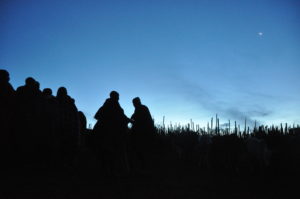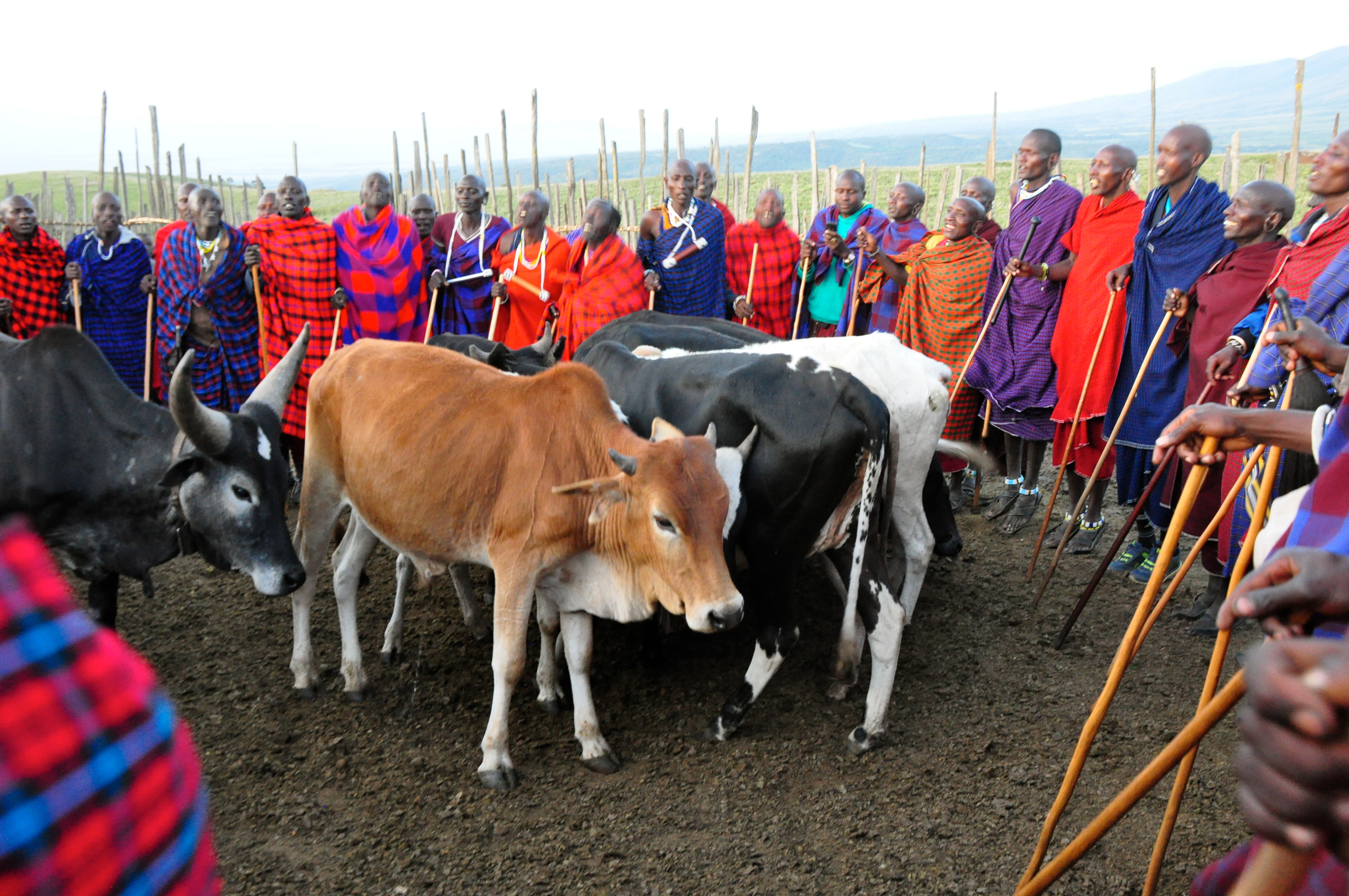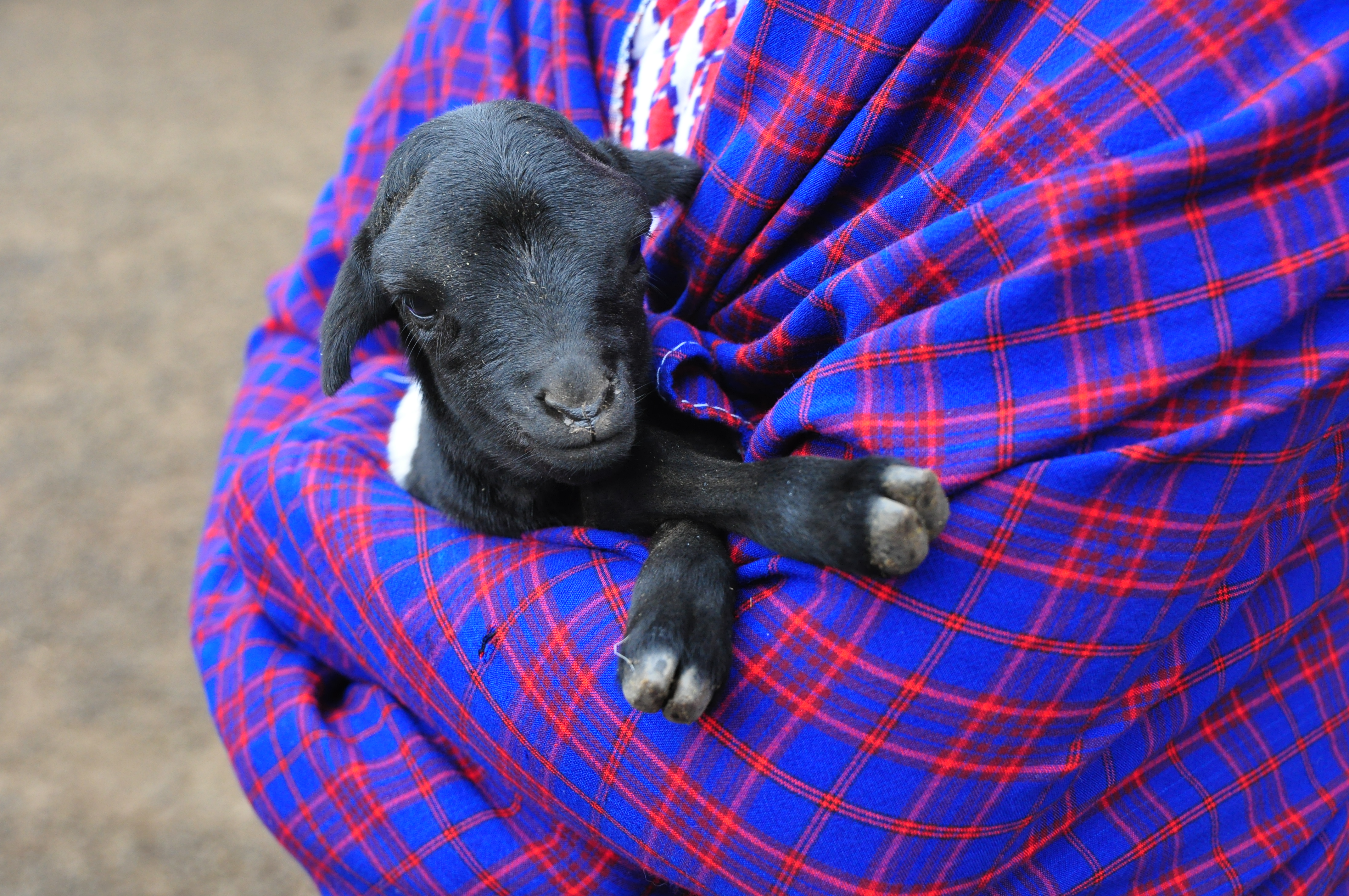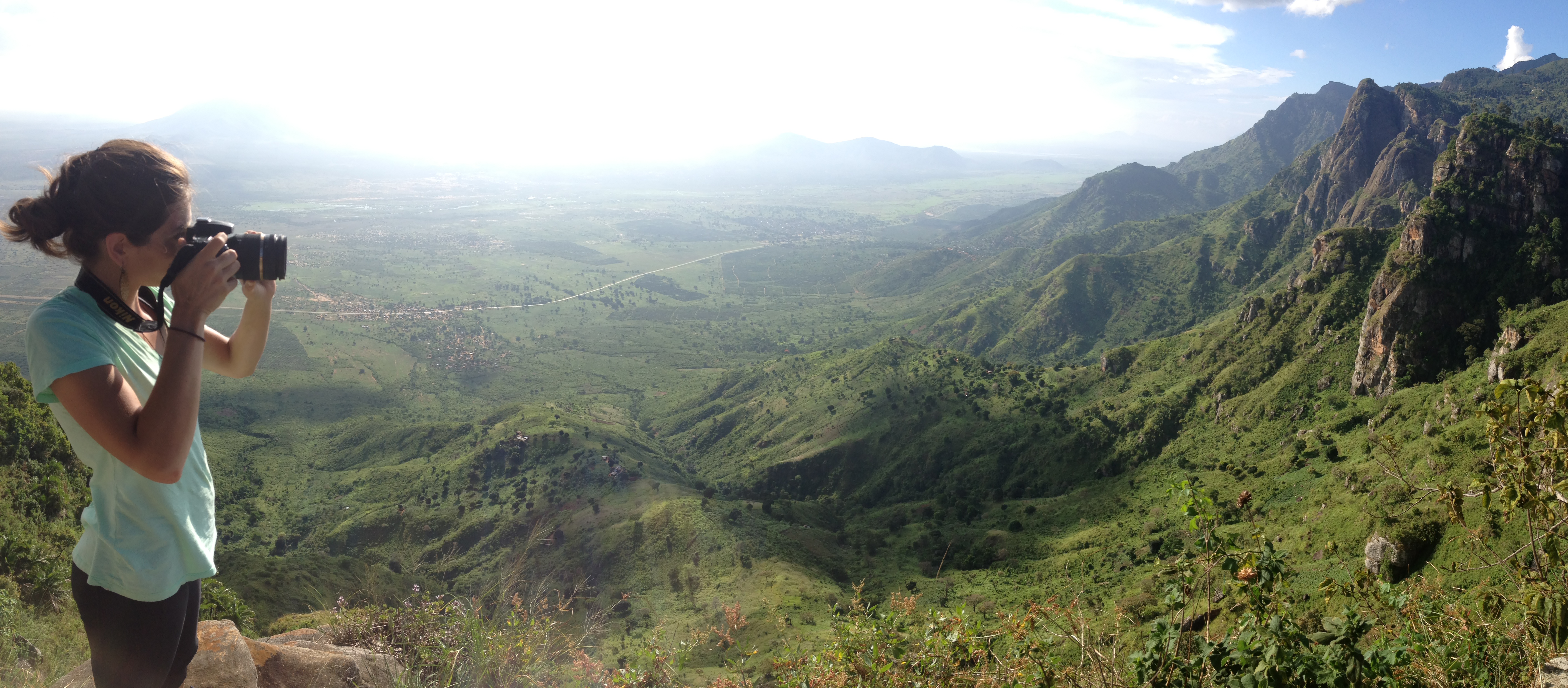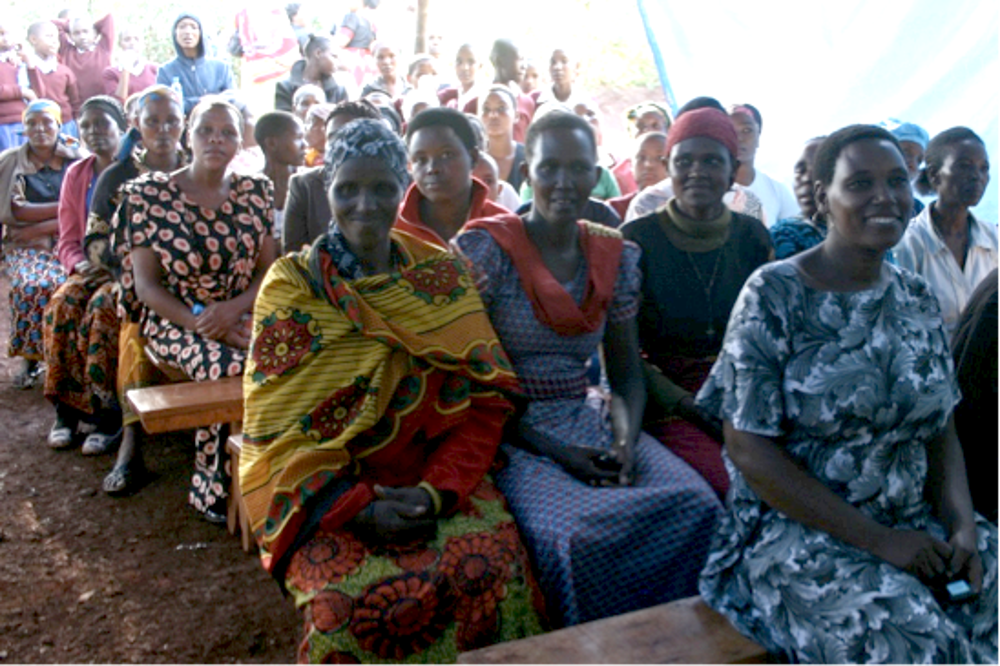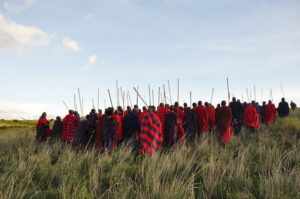
We hopped out of the Land Rover and followed our guides, running as fast as we could wrapped in shukas across uneven fields sprinkled with stinging nettle.
“Come Judy, come Kim, come Jim—have your camera ready!” Mbekure urged us on. We were late to the start of the evening’s event—the first night of the Oring’eheri, or a culturally very significant, senior elder ceremony.
We arrived breathless to a large group of men, who were just beginning an uphill trek circling several bulls as they moved.
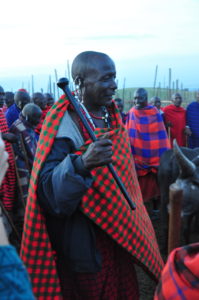
A sea of red and blue plaid cloth against a gorgeous, soft green vista, these Maasai were chanting, huh-rooming, and singing with staffs in the air as they moved toward an enclosure.
They reached their destination, an area closed off by stick fencing, and formed a tighter circle around the cattle just as dusk turned the landscape into a beautiful, velvety panorama.
As the men sang, jumped and stomped, village elders flicked a sour-smelling mix of alcohol and milk on the huge, docile bulls, blessing them before the slaughter that would inevitably take place. Though we were only observers (joining voices or jumps with the men when we could,) the three of us felt moved by the night as the chorus of hypnotic male humming reverberated within us.
The men would continue this ceremonial practice through the entirety of the night until dawn, when a specially selected cow would be suffocated—as is custom for this occasion—and the others killed in turn to be roasted as food for the celebration.
It was the evening before Alcheniomelock’s key ceremony day, and we were the only non-local people present to witness this amazing piece of culture. Maasai across Tanzania and Kenya had been preparing for similar customs throughout the previous year and held their own ceremonies in their respective regions and villages.
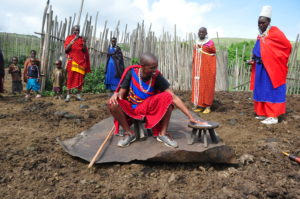
It was only when long-awaited rains finally arrived, albeit briefly, that the event could actually take place.
That morning in preparation for the ceremony, Mbekure had doused his head in milk from a small, scooped-out stool. His wife then shaved his head with a straight razor as family members looked on.
“The milk will help my hair to become white now that I am an elder and wise,” Mbekure explained with a smile.
Roles within society are important to Maasai men and women throughout their lives, and they dictate everything from hairstyle to jobs to who eats with whom. Near the middle of his age group at 30 years old, Mbekure Metemi, AMSO program director, was moving up from junior to senior elder and was overjoyed we could witness this. Not only because we are close friends, but because he cares so much about his people and their history.
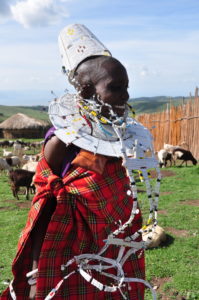
“See how the Maasai people are preserving their culture?” he asked us, as we headed home for the night. He wants us to see the efforts being made to keep it alive despite marginalization and endless obstacles.
He wasn’t the only one to do so; other locals we met over the next several days—returned from pursuit of higher education afar—told us how fortunate we were to be a part of this ceremony and stressed the importance Maasai place on holding tight to their traditions in a rapidly-changing world that encroaches daily.
Despite a lack of water, proper food, and access to basic human needs, despite a country that all but forgets them and a government that makes it ever more restrictive to stay on the lands they’ve lived on for centuries and despite drought that’s been detrimental to the very core of their livelihood and survival, these people prepare, don their finest, smile and celebrate the new responsibilities they will take on into the future.
*This is part one of a two-part blog about the ceremony we attended—keep an eye out for the next section coming soon!